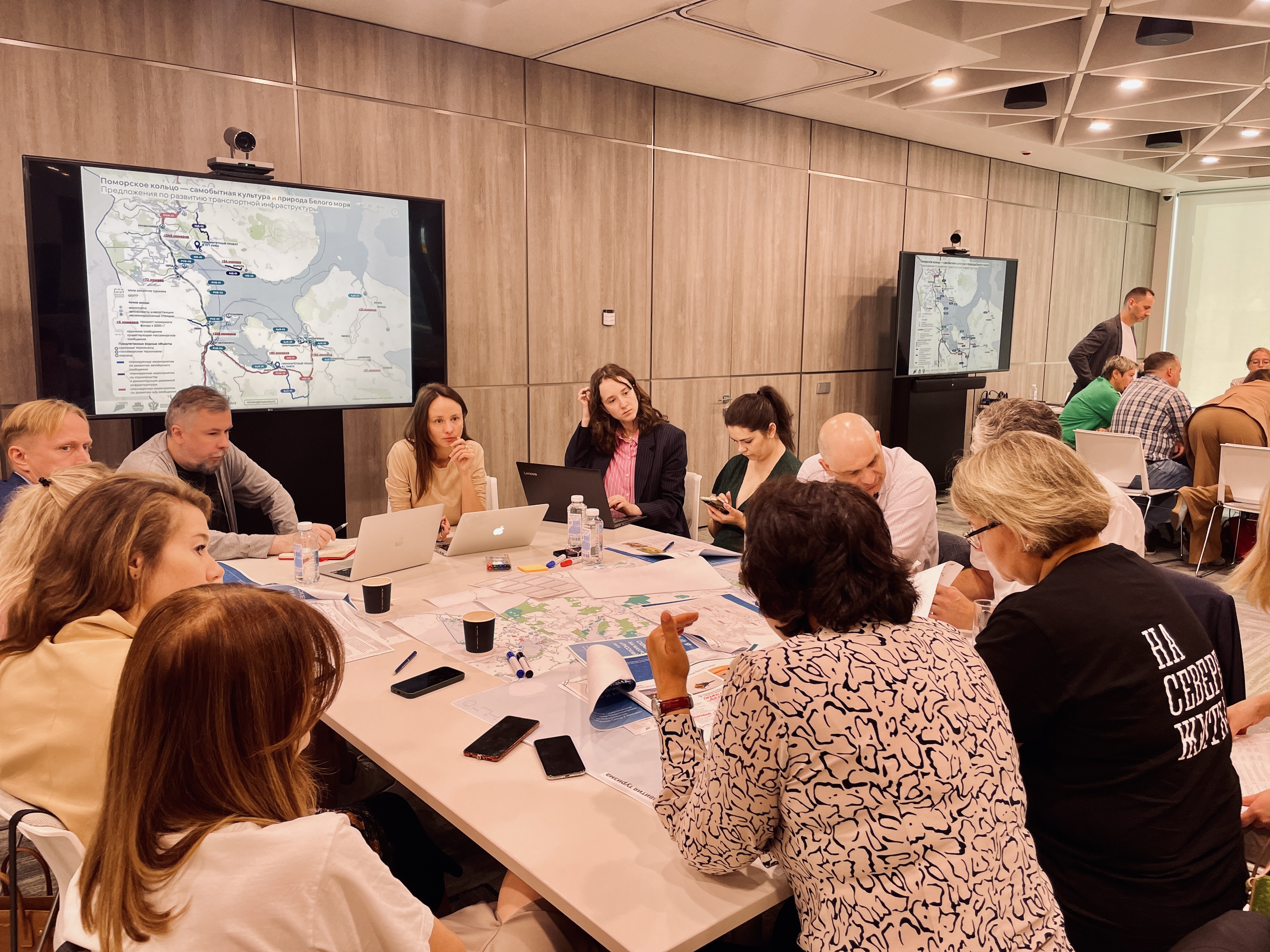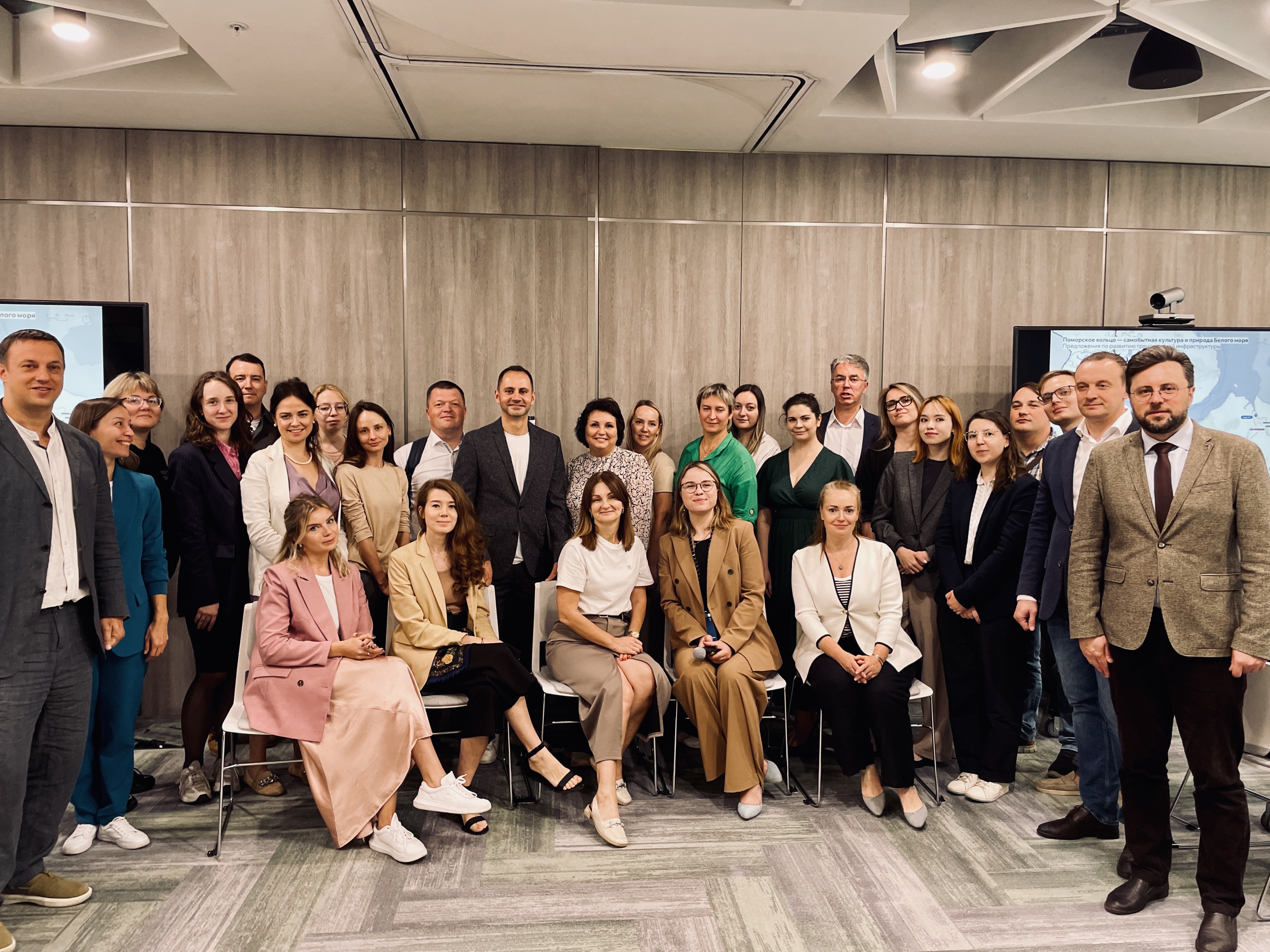Experts have identified five most promising areas for tourism development in the “Russian North and Arctic”
As part of the second stage of the development of the tourist scheme "Russian North and Arctic", which includes the Arkhangelsk, Vologda, Murmansk regions and the Republic of Karelia, a strategic session was held in Moscow to discuss the interim results of the project. The session was attended by representatives of government bodies, municipalities, businesses and experts from all four regions participating in the project, as well as the developers of the tourist scheme. Work on the project is being carried out by OOO ProGorod (VEB.RF) on the initiative of the Ministry of Economic Development of Russia.
"As part of the session, we continued the dialogue that has been going on with the regions of the Russian North and the Arctic for almost a year. The main thing that should be paid attention to today is the issues of ethnography and ecology in conjunction with transport infrastructure - how to create a service and conditions for a tourist in remote locations and without harming nature," commented the results of the session Chairman of the Tourism Committee of the Murmansk Region Alexander Eliseev.
Experts identified ethnotourism, event tourism, industrial tourism, gastrotourism and active recreation as the most promising in the macro-territory. To develop ethnotourism, they proposed focusing on creating conditions for immersion in the culture of the indigenous population, not limiting ourselves to classic excursion formats. The second important area is event tourism. Creating a single calendar for all four regions and expanding it with new events held in the off-season will reveal the diversity of the macro-territory and reduce the seasonality of tourist trips. According to experts, industrial tourism, gastrotourism and active recreation also have great potential in the territory of the "Russian North and Arctic".
As discussed by the participants of the strategic session, one of the most pressing issues for the macro-territory is the transport framework, and key decisions here should be aimed at increasing interregional connectivity and travel comfort, as well as developing water transport. In order to compensate for the lack of transport connectivity, it is proposed to develop railway communication, and off-road and snowmobile routes as independent tourist products. It is also necessary to develop the existing road network and the ground public transport system, and due to the emergence of a comfortable yacht infrastructure and ensuring the safety of navigation, it will be possible to create an intensive yachting area. In turn, the development of berthing and terminal infrastructure will contribute to the expansion of the geography of cruise and regular passenger communication.
"One of the key barriers to tourism development in the macro-territory now is the poor connectivity of the transport network. This leads to the lack of alternatives for a number of routes and limits the ability to comfortably reach the main points of attraction. During the comprehensive analysis, we developed proposals for the creation of 5 interregional thematic corridors - in the context of the Murmansk region, for example, the Kola Peninsula could become such a corridor, including several types of tourism at once: eco-, gastro- and industrial tourism, active recreation, as well as water travel," said Ksenia Titova, Head of the Project Office of ProGorod LLC (VEB Group).
The advantage of the Russian North and the Arctic is the opportunity for a secluded holiday. According to analytics, 63% of the points of attraction of the macro-territory are located outside the key cities and mainly in natural locations where valuable natural areas, protected areas, a large number of water bodies, as well as areas of settlement of indigenous and small-numbered peoples of the North, preserved northern villages and towns are located.
The results of the strategic session will be included in the project roadmap, which will be presented to the Government of the Russian Federation in the first quarter of 2025.
/ Tourism Committee of the Murmansk Region /










 Investment portal of Murmansk region
Investment portal of Murmansk region Investment map of Murmansk region
Investment map of Murmansk region
 Agency of Strategic Initiatives
Agency of Strategic Initiatives Мойбизнес.рф
Мойбизнес.рф  Development center of
Development center of  Murmansk city Administration
Murmansk city Administration Investment portal of Arctic zone
Investment portal of Arctic zone Rosinfra
Rosinfra